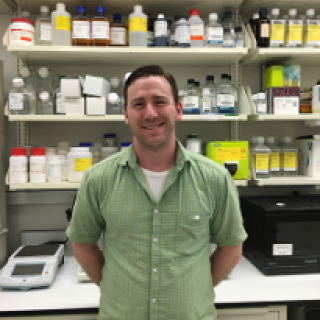
Michael L. Beshiri, Ph.D.
- Center for Cancer Research
- National Cancer Institute
- Building 37, Room 1066
- Bethesda, MD 20892
- 240-760-7102
- mike.beshiri@nih.gov
RESEARCH SUMMARY
Dr. Beshiri is a molecular/cellular biologist focused on the creation and application of preclinical models of prostate cancer to address questions related to pathology and resistance to therapy. A major obstacle in the field of prostate cancer research is the relative dearth of in vitro models needed to represent the significant genomic and phenotypic heterogeneity of the disease and myriad mechanisms of resistance to treatment. This is because prostate cancer has been historically recalcitrant towards efforts to adapt tissue samples into culture.
Since joining the Kelly Lab, he has developed new organoid culture methods, and used these methods to established novel patient-derived organoid models of castration-resistant prostate cancer (CRPC) through a collaboration with the Genitourinary Malignancies Branch in the NIH clinical center. Additionally, he worked in collaboration with the University of Washington to adapt their LuCaP series of patient-derived xenografts into long-term organoid culture.
Dr. Beshiri’s most recent work capitalizes on the opportunities presented by the new organoid models, with a particular focus on lineage-plasticity as a mechanism of treatment-resistance in prostate cancer. Using patient-derived organoids that capture the complex multi-lineage heterogeneity of both luminal epithelial adenocarcinoma (ACPC) and neuroendocrine prostate cancer (NEPC) observed in the patient tumor, he has applied multiple different single-cell techniques to these organoid models to achieve the following results: (1) Defined the multiple states of differentiation, and the developmental hierarchy in the multilineage organoids - discovered a stem/progenitor subpopulation as the underlying source of both proliferation/growth and heterogeneity of lineage. (2) Identified transcription factors (TFs) associated with clonal subpopulations of stem/progenitors as well as TFs that are uniquely associated with ACPC and NEPC lineage within a mixed lineage state. (3) Determined and exploited specific molecular vulnerabilities in the stem/progenitor subpopulations to block tumor growth.
Areas of Expertise

Michael L. Beshiri, Ph.D.
Publications
- Bibliography Link
- View Dr. Beshiri's ORCID